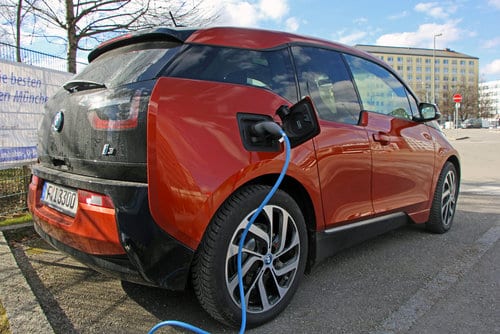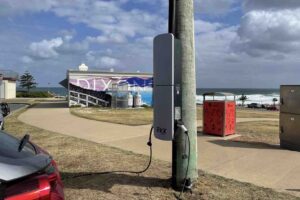
Germany is considering providing 2 billion euros to subsidize the purchasing of more electric cars. German Economy Minister Sigmar Gabriel is behind the idea, which also includes adding more EV charging stations and supporting the acquisition of more electric vehicles for federal offices.
One might expect it would be an individual from an environmental government department who came up with such an idea, because electric vehicles are better for the environment, but the German government in general is getting more supportive of EVs. It wants one million of them on the roads by 2020, which is obviously just four years away. (One source estimatedthat there may be another 950,000 which need to be sold to reach the goal.)
As was mentioned before, Gabriel’s idea is not only something which is environmentally conscious, because presumably many of the newly purchased electric vehicles would be German-made. Encouraging the purchase of vehicles manufactured in Germany with a subsidy would be good for companies like BMW and Volkswagen, which already make EVs but are planning to introduce a lot more models.
Of course, EVs are better for human health too because they produce no tailpipe emissions, so German urban air quality would most likely improve. In fact, if a household had enough solar power, it might generate enough electricity to charge an EV at home with clean, renewable electricity.
Scenarios involving clean electricity to charge the batteries of vehicles that produce no tailpipe emissions might sound idealistic or fantastic. However, areas within Germany already generate high levels of clean, renewable electricity, so there is no reason why it can’t be used to power electric vehicles.
Electric cars are part of the energy puzzle that Germany has been working steadily to solve by reducing the use of fossil fuels and nuclear power.
One fascinating thing about a scenario where there are one million electric vehicles in a nation is that they can function as a sort of energy storage system. In other words, they can store electricity when they are not be driven. Additionally, if a homeowner has a solar power system but no battery storage, the battery in her or his EV could store some of the excess electricity generated by it (theoretically).
If 2 billion euros are invested in this EV subsidy, there are likely to be a number of wins: reducing air pollution which contributes to smog, reducing climate change emissions, moving the nation further along a path towards clean electricity, and supporting German auto manufacturers and their employees.
Source: CleanTechnica. Reproduced with permission.








